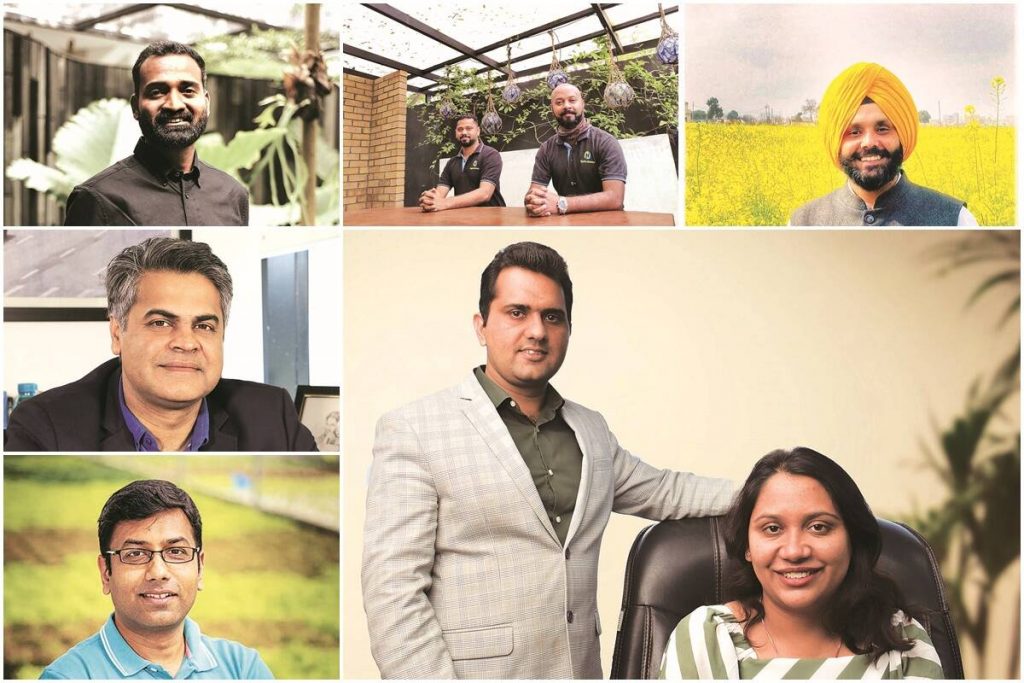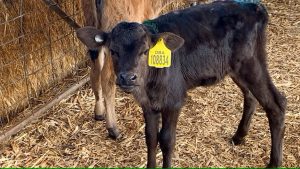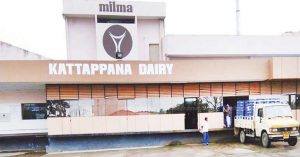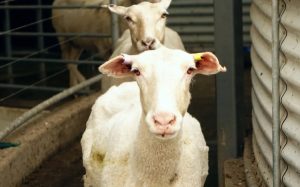While there has been a lot of controversy around the new farm laws—with talks between the Centre and the protesting farmers resulting in a stalemate every time—a group of young entrepreneurs are engaged in fixing some of the major issues faced by India’s agriculture sector. These ‘agripreneurs’ are also trying to make agriculture niche and lucrative by the use of technology and innovative models of businesses.
In the past few years, two major tailwinds—deeper penetration of smartphones in rural areas and falling data costs—have changed the way rural India went about doing business and solving the challenges faced by the agriculture sector. Benefitting from all this are agritech startups that have mushroomed across the country. As per a recent study by Accel-Omnivore, funding in the agritech sector rose from $45.8 million in 2016 to $430.6 million in 2020—a 9.4x growth during this period.
While the onset of Covid-19 early last year disrupted several industries, the agritech sector has proved to be surprisingly resilient. “Strong tailwinds formed by restricted movement, migration of labour, and increased consumer awareness of health have helped escalate the adoption of technology throughout the farming ecosystem. Moreover, the classification of agricultural products as essential commodities ensured business continuity for most players during the lockdown,” the Accel-Omnivore study noted.
Here we look at a few notable startups in the sector…
Aquaconnect
Based in Chennai, it’s a one-stop solution for aquaculture farmers
India exports about $5 billion worth of farmed shrimps every year, making the country the largest exporter of frozen shrimps in the world. Yet the lack of technology adoption pulls the growth of the industry downwards.
In comes Aquaconnect. It was founded in 2017 to pioneer the development of machine learning and satellite remote sensing technologies for improving farm productivity and market linkages in Indian fish and shrimp farms, or aquaculture. “In 2016, a casual conversation with a shrimp farmer on a train journey helped me understand the farmer’s challenges in aquaculture farming. Coming from the high-tech sector, I envisioned a technology solution that could improve farm efficiency, market linkages and eventually improve the farmer’s income. Thus was born Aquaconnect,” says founder-CEO Rajamanohar S. From stocking to harvest, Chennai-based Aquaconnect offers end-to-end services for fish and shrimp farmers. “We provide on-ground farm advisory, sell farm inputs, provide formal credits, insurance and offer market linkages for farmers to sell their harvest produce. Our farm advisory solutions are offered as a freemium service. For others, we collect service fee from transactions, depending on the service,” adds Rajamanohar.
Aquaconnect works with 26,000 shrimp and fish farmers in Andhra Pradesh, Gujarat and Tamil Nadu and has grown 18x in terms of user adoption and sign-ups since March 2020. In 2019, the startup received $1.1 million seed capital from Omnivore and Hatch Norway. According to Rajamanohar, the new farm laws have little to do with animal husbandry and fisheries, hence, the impact may not be relevant there.
AgNext
The startup, based in Chandigarh, is trying to resolve trust issues between the buyer and the seller Chandigarh-based AgNext is solving the biggest concern in Indian agriculture—the lack of trust in key transactions starting at the procurement stage. Vast amounts of farm produce are assessed by traders or middlemen by what they see and feel with their eyes and hands, based on which prices are determined. Over the years, this mode of assessment has become a tool with which traders and middlemen have exploited farmers.
So AgNext has innovated technology that uses tools like computer vision, spectral analytics, internet of things (IoT) and artificial intelligence (AI) to analyse produce quality in about 30 seconds, solving the trust issue between the buyer and the seller across the agriculture supply chain and also accelerating transactions. “The benefits are immense because there is no human involvement. It’s totally digitised and users can access important data. With the right technology in place, farmers can obtain accurate prices for their produce and greater incentive to improve their farm practices for better-quality crops. For businesses, this technology helps save money and increase profitability because now they know what they are paying for,” says Taranjeet Singh Bhamra, founder-CEO of AgNext.
“Finally, for consumers, we ensure quality by accurately ascertaining whether there are adulterants or not. So we are digitising food to accelerate transactions and build sustainability at its core,” adds Bhamra, an alumnus of IIT-Kharagpur and IIM-Calcutta, who founded AgNext in 2016.
AgNext’s revenue model consists of SaaS-based subscription of its solutions, where hardware and software are provided as a service to companies.
Apart from analysing the physical parameters, AgNext’s tools can also test the chemical composition of a crop instantly. This subscription-based service is deployed both on an annual basis as well rental basis of per month or per season subscription. “Our target audience consists of all agribusinesses involved in food processing, warehousing, trading and also having food collection centres in sectors like tea, milk, grains, spices and animal feed,” says Bhamra.
AgNext has also become India’s first digital assaying company for the government. “In grains, we are working across seven states, impacting 1.5 million tonnes of procurement through our system. We partnered with the Tea Research Association of India to develop a tea leaf quality assessment system, which today sits in factories like Goodricke, Rossell Tea, Bokahola Tea and estates of the Tea Board of India, which procure tea leaves straight from the plantation,” he adds.
GramCover
The startup, based in Noida, is creating a retail market for insurance products in rural India
Jatin Singh, the founder of GramCover, says he got into entrepreneurship by chance. First, he started Skymet, an agri weather risk management and data company. The 43-year-old Delhi native’s second stint as an entrepreneur was again by chance after he got acquainted with crop insurance. Singh saw a pain point there as he found that there was very limited penetration of insurance in the rural heartland. “I saw a good business opportunity,” says Singh, a Boston University alumnus. In 2017, GramCover was born.
Essentially, the startup makes commissions on premiums distributed. “We offer varied products like personal accident cover, hospicash, two-wheeler, livestock insurance, etc, on our platform with ticket sizes ranging from Rs 35 to Rs 2,000. For the access created for rural customers through our tech platform and point-of-sale partner network, we are paid brokerage by insurance companies, which ranges from 10-16.5% of the premiums distributed,” explains Singh.
GramCover’s target audience is clearly the rural Indian. “As we all know, large parts of rural India are dependent, directly or indirectly, on agriculture. In that sense, small-holder farmers with land holding of less than 2 hectares form a key client segment. This would also include landless cultivators who take land on a tenancy basis and pursue agriculture. These farmers are the most vulnerable and have the least access to formal finance as well as insurance,” he adds.
Over the past three years, the startup has been growing by more than 100% y-o-y. “This year, we are surpassing `100 crore in gross premium,” Singh says. Over 1.7 million farmers in the country have purchased insurance through GramCover since its inception. In the past few years, GramCover has worked in seven states, 28 districts and 3,000-plus villages.
Commenting on the new farm laws, Singh says they need more definition in consultation. “Some parts are okay, but when they were pushed through Parliament, I foresaw that they would see tremendous amount of resistance. I think the government will have to peddle back on at least two of those three laws. I am neither for or against them. I think the whole structure or the intent was good, but the communications as well as the nuance are missing,” he adds.
Clover Ventures
Based in Bengaluru, this greenhouse agri startup delivers fresh produce through tech
Clover Ventures was started by childhood friends Avinash BR, Gururaj Rao, Arvind Murali and Santosh Narasipura—all aged 40 years today. The idea germinated when they used to spend occasional weekends at a coffee estate owned by co-founder Narasipura in Karnataka’s Chikmagalur.
Avinash was a part of early-stage VC firm Aavishkaar and was acquainted with greenhouse farming where crops are grown in controlled microenvironments. While pooling in different ideas on the table, the idea of hydroponics—a type of horticulture where crops grow without soil, by using mineral nutrient solutions in a water solvent—enthused all the founders. “We did research and decided to set up a greenhouse on an acre of land and thus began the journey of Clover in 2017,” adds Avinash.
The founders started by setting up their own greenhouse farm on the outskirts of Bengaluru and growing fresh produce. They sold it to B2B clientele such as internet kitchens and fine-dining outlets. Following up on the early favourable response on the high and clean quality of the fresh produce, they did a deep-dive in understanding the ecosystem for perishable fresh produce—where is it grown, how does it reach customers, the challenges for stakeholders at either end of the spectrum, etc. “Increasing demand from customers for a wider product portfolio, coupled with us hitting peak production capacity in our farm, meant we started reaching out to farmers with a greenhouse to supplement the production capacity. We realised that the majority of farmers who have greenhouses are unable to leverage the asset judiciously as they are grappling with challenges of demand know-how, yield, productivity and access to markets. We then started with such farmers and offered them full-stack agronomy service and ensuring yields and productivity for them,” he says.
Currently, Clover is working with over 150 farmers across Bengaluru and more than 70 farmers in Hyderabad. It grew at a CAGR of 40% from April to December 2020. “We also introduced 40 new stock keeping units (SKUs) in 2020 and expanded to Hyderabad in 2019. Revenue has grown 4x over the last six months,” says Avinash. Clover raised its seed-round of $1 million in December 2018.
Commenting on the controversial farm laws, Avinash says that as a player in the ecosystem who is trying to build an equitable balance between farmers and consumers, the changes intended in the Bills are in the right direction. “However, we cannot expect overnight sea changes. Stakeholders will have to let the implementation play out while being mindful to making required adjustments down the course,” he adds.
Freshokartz
This startup, based in Jaipur, connects farmers through tech
Freshokartz was born in 2016 when founder Rajendra Lora noticed a huge difference in prices of vegetables sold in the cities and those in villages. “I was working as a software developer in Mumbai. One day, while buying onions from a retail outlet, I saw that they were being sold for `20 per kg, but when I called my father, I found out that they were available for just Rs 4-5 per kg in our village. That’s when I realised that there are many layers of mediators and they were taking a good amount of the margins,” says Lora, whose family grows onions at their farm in Nagour district in Rajasthan.
Lora’s startup Freshokartz provides soil data-based crop and fertiliser recommendations to 1.2 lakh farmers through a network of 40 physical centres and a mobile application. Based on these recommendations, the Jaipur-headquartered startup delivers quality seeds, pesticides and fertilisers to farmers at their doorstep directly minus the middlemen. “We have around 100 B2B partners in the market linkages part and more than 50 agri input companies like UPL and Sulphur Mills as partners,” says Lora. Freshokartz is currently present in 15 districts of Rajasthan and is soon poised to expand to Haryana and Madhya Pradesh as well. “In FY 2019-20, we did a business of Rs 5.16 crore. In the next two years, we will be doing a business of Rs 15 crore and Rs 50 crore, respectively, with a network of over 10 lakh farmers,” adds Lora, whose wife Chandrakanta is now the co-founder and COO.
Hydrogreens
The agri solutions provider is working to solve the country’s fodder shortage problem
The shortage of feed and fodder remains a major area of concern in India owing to the huge gap between demand and supply. As per an estimate by the National Institute of Animal Nutrition and Physiology—affiliated to the Indian Council for Agricultural Research—the deficit in the requirement and availability of dry fodder, green fodder and concentrates in 2015 was 21%, 26%, and 34%, respectively. This may increase to 23%, 40% and 38%, respectively, by 2025, as per the report.
This, in turn, accounts for a major reason why Indian livestock milk productivity is 20-60% lower than the global average. Feed alone constitutes 60-70% of milk production costs. To address this issue, 38-year-old Vasanth Madhav Kamath and 35-year-old Jeevan M started Bengaluru-based Hydrogreens in 2019, which sells vertical climate-controlled grow systems named as ‘Kambala’ to farmers in dry and arid regions. Using it, 20-30 kg of high-protein fodder can be harvested every day in limited space—using very little water (optionally)—and run on solar power even in extreme temperatures. “We have deployed about 100-plus systems in Karnataka, Andhra Pradesh, Rajasthan, Odisha and Meghalaya, etc. We are growing steadily at about 30% QoQ and have clocked about Rs 25 lakh in revenue,” says Kamath.
Welcoming the new farm Bills, Kamath hopes that they could have the same or better impact than the Milk and Milk Product Order (MMPO) 1992, which expanded the scope to organise dairy processing in addition to the co-operative movement. “With more capital flowing into the sector, technological infrastructure like bulk milk chilling centres at thousands of locations, coupled with processing centres at hundreds of locations, have happened. This has helped consumers get more options and more value, while the farmers also got more price for their produce,” he says, adding, “We hope that the Indian dairy system becomes an example that inspires the industry, farmers and consumers to be a part of a fair value chain that is best for all and good for the climate too.”
Kunal Doley is a freelancer

















